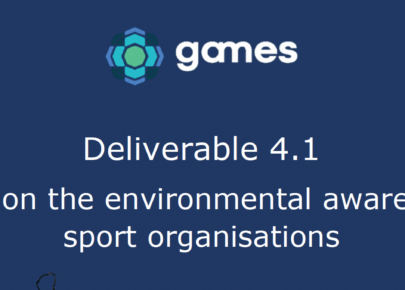IBU reiterates commitment to tangible climate action ahead of 2023/2024 season
GAMES partner, the International Biathlon Union, reinforced its commitment to delivering impactful climate initiatives as it continues to advance the implementation of its Sustainability Strategy and work to reduce the sport’s climate impact by 50% by 2030, in alignment with the Paris Agreement.
One of the first sports organisations to join the global UN Race to Zero, the IBU has committed to upholding the highest sustainability standards in sport and taking the 50% reduction by 2030 a step further by becoming net zero by 2040.
With the biathlon 2023/2024 season just a month away, the IBU is working with National Federations and Organising Committees to track and reduce the sport’s carbon footprint and minimise the impact of its events.
Since the 2021/2022 season, all event hosts are obliged to track and report their CO2 emissions through the IBU tracking tool. Recognising that effectively managing a sport’s carbon footprint requires understanding of all its dimensions, the emissions from the events will be combined with those generated by the IBU as an organisation. The tracking of the IBU’s emissions, which is published each year, has allowed the federation to take concrete steps so that the CO2 emissions per employee decreased by 32 tonnes from 2020 until 2022.
Looking ahead, the IBU is committed to integrating climate considerations into the review of the formats and calendars of future seasons. Sustainability concepts must be developed for each event organiser applying to host in the 2026-2030 cycle and a third-party certification requirement for event sustainability management will apply to the World Championships from 2027 onwards.
IBU head of sustainability Riikka Rakic said: “Since the launch of the IBU Sustainability Strategy, the IBU has made significant progress in implementing meaningful initiatives and projects which have reduced our sport’s carbon footprint and minimised its impact on the environment.
“However, we still have much more to do and remain committed to honouring the ambitious sustainability promises, not through words but through action. We cannot do it alone and we will continue to form partnerships and alliances in order to share best practices and accelerate advancement.”
Through its national federation support programme, the IBU funds projects designed to develop sustainability strategies and action plans on the national level, with six member federations receiving funding for projects on environmental sustainability and 17 on social sustainability in 2023.
The IBU’s full flour ban will come into effect this season to mitigate environmental concerns with meticulous controls in place and consultations with the European Union and the European Chemicals Agency regarding lead continue.
The IBU Sustainability Strategy is centred on building awareness and communication. Working with the IBU Climate Partner Viessmann, the IBU has looked to promote and celebrate sustainability initiatives led by biathlon clubs with the Climate Club Trophy. Together, the partners also hosted two editions of the Biathlon Climate Challenge which saw close to 13,000 fans from more than 40 countries turn their physical activity into the planting of 150,000 trees.
Find further information on the IBU Sustainability Strategy, sustainability highlights and reports by clicking here.






